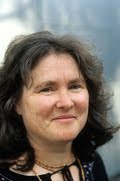Pitcairn Island is where Fletcher Christian, his fellow mutineers and a dozen Tahitian women settled after the mutiny on the
Bounty. These days it is populated with around 50 people, many of them direct descendants of these historical characters. But casting aside the myth and romance of it's turbulent beginnings, this remote island has a sinister side. In 2000 police went to this British colony to investigate disturbing reports of rape. What they discovered were multiple accounts of widespread child abuse dating back generations. It seemed that few girls had escaped the abuse and many men, some of them community leaders, were among the accused. As virtually everyone on Pitcairn is related to one another, the tangle of abuse also involved incest.
 |
Pitcairn Paradise Lost
(Fourth Estate, 2008) |
This book details the trials held on Pitcairn and New Zealand which tore the small community apart. Several men were finally convicted but many were acquitted or failed to come to trial when victims were pressured by family members not to testify.
I found this book harrowing and profoundly disturbing. Marks was one of only six journalists to gain access to the island for the trials. Her account is written plainly, which makes the victims' accounts all the more stark. It also shows the vitriolic attacks of the community against her reporting. In the last few chapters she comments on the fragility of societies and how easily humanity can degenerate into anarchy, where the vulnerable suffer and strong men prosper.
On a lighter note, the island sounds beautiful and rugged. I can only hope that its future will be brighter and that the influx of outsiders and better infrastructure will propel it into the modern age where children's rights are respected.


No comments:
Post a Comment